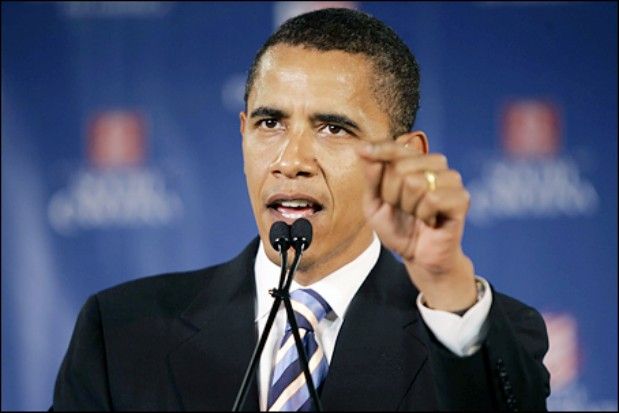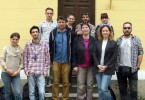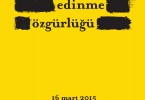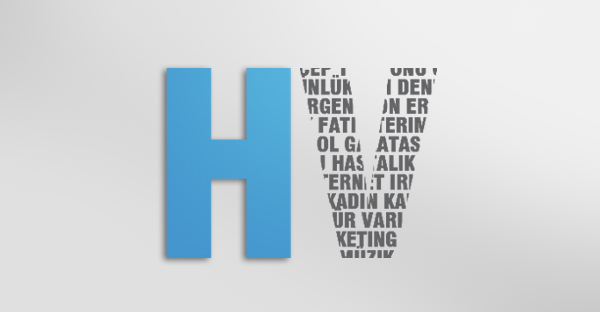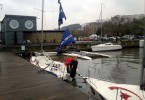aNiyazi Dalyanci
“President Barack Obama’s visit to Turkey underlines the importance the new US administration attributes to Turkey as a ‘pivotal’ nation in the region that might undertake more crucial functions beyond and above simply acting as a mediator,” wrote Cengiz Candar, veteran foreign affairs commentator of mainstream daily Radikal.
“Why is he coming? Surely, he is coming not to give but to take,” with these words Onur Oymen, the vice-chairman of the main opposition Republican Peoples Party (CHP) expressed his interpretation of the presidential visit.
As expected, the new US President Obama’s visit to Turkey, scheduled for the beginning of April, gave politicians and journalists the opportunity to express sometimes diametrically opposing feelings.
However, both those who view the visit with some apprehension and those who claim that Obama’s choice of Ankara as the destination of his second trip outside America shows how Turkey’s strategic importance has increased in the eyes of the US administration, agree on the topics that would be discussed during the talks.
“It is obvious what he would want. He is giving priority to Afghanistan. While he is shifting his forces from Iraq to this country, he is going to ask for combat units (to serve in Afghanistan) from Turkey. Another topic is the opening of the border with Armenia. He would demand the solution of the Cyprus problem in a satisfactory manner for the Greek Cypriots. Also the withdrawal of US troops from Iraq via Turkish territory will also be on the agenda. There is no chance for the government to say ‘No’ to any of these demands,” said Oymen.
Oymen also claimed that Obama will use the Armenian genocide bill in the Congress as a lever to apply pressure on the Turkish government.
Leading Turkish journalist Mehmet Ali Birand agrees on the possible topics to be taken up during Obama’s Ankara talks. But he approaches the subject in a positive manner.
“During his election campaign Obama promised that he would recognize the Armenian genocide. Now he is expecting a gesture from Ankara so that he can break his promise. The opening of the border will gratify Yerevan so much that, dropping his support for the Armenian genocide bill will not bring a loss of prestige for Obama,” writes Birand.
Regarding sending combat troops to Afghanistan, Birand says the public opinion in European allies of the US is so much against such a move, but in Turkey public supports overseas missions for the Turkish soldiers. He implies that the government might agree to sending troops to Afghanistan.
However, foreign affairs commentator of Milliyet, Kadri Gursel, disagrees with Birand on this account. “Because of its ‘Islamic’ identity and its ‘spiritual’ relationship with its voters it cannot give such a support to the US. The Obama administration wants its NATO allies to support it with combat troops in Afghanistan. These troops will not go on patrol in the secure areas of Kabul but are expected to fight with Al Qaida and Taliban fighters and shed their blood. The US administration could not get this kind of support in the past and it would not be able to get it in the future either,” writes Gursel.
On Cyprus, Birand says the US holds a trump card. “As long as the Greek Cypriots do not lift the embargo against the Turkish Cypriots, Turkey will not open its ports to vessels flying the Greek Cypriot flag. Because of this Turkey’s membership talks with the European Union have entered an impasse. If Obama convinces the Greek Cypriots, the block on the EU negotiations will be removed,” he says.
Turkish Foreign Minister Ali Babacan has already gave green light to the withdrawal of US troops from Iraq through Turkish territory, Birand points out and says that Ankara will be supporting Washington’s policies in this respect.
Another possible topic is Turkey’s Kurdish problem, Birand says. “Washington wants Turkey to have good relations with Masoud Barzani, the leader of the Kurdish administration in northern Iraq. It also wants Turkey to take some ‘steps’ towards the solution of the Kurdish problem. If these are done, then Washington might put into practice the plan for the ‘liquidation’ of PKK (the separatist Workers’ Party of Kurdistan),” according to Birand.
As for Turkey’s role in the Middle East, Birand argues that Ankara does not hold important cards with respect to both Iran and Palestine. “The US has the initiative in these areas. If Washington wants it can include Turkey in the play. Otherwise, it can leave Ankara out. There isn’t much that Turkey can do about it,” writes Birand. He also points out that Turkey is the only ‘major’ country in the region that maintains good relations with both Iran and Hamas. This might enable Turkey to act as a ‘catalyzer’ in streamlining possible talks.
Another important issue is the Nabucco natural gas project that would connect the Asian gas fields to Europe without passing over Russian-controlled territory. Birand says that the realization of this project depends on American support. “This is another strong card that America holds in the bargaining,” he observes.
Despite the optimism reflected by Birand, Gursel points out to possible trouble especially in relations with Iran. “Let’s pray that these two nations solve their differences through negotiations. If Iran does not agree to a compromise about its nuclear program, the US might ask the UN Security Council, of which Turkey is an alternate member, to take drastic measures. While the moderate Islamic government of Turkey would be at a loss regarding how to respond to this call, it will also confront anti-American pressure from its grassroots and would find itself in dire straits,” writes Gursel.
The Milliyet columnist also does not believe that Turkey being an Islamic country and a democracy at the same time is a factor that strengthens its relations with the west. “The argument that the interaction between the Islamic identity of Turkey and its faltering democracy is a factor that is reflected on our foreign policy that strengthens our relations with the West is an empty argument. It is just an expression of the manic attack that some minds have undergone over the news of Obama’s visit,” Gursel writes.

